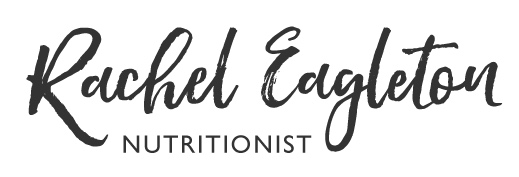Boosting your calcium intake on a lactose free diet
/Did you know more than half of Australians adults don't get enough calcium? Calcium is the major building block for our bones - it's deposited as a crystal onto out bones to give them strength. Our bones also store calcium so that when we don't get enough calcium in our diets the body will take calcium from our bones. This is why it is really important to have a daily supply of calcium throughout our lives.
The Recommended Daily Intake (RDI) of calcium for adult men and women is 1000mg, and for women over 50 and men over 70 this increases to 1300mg per day to minimise bone losses that tend to occur later in life.
The best source of calcium is dairy with 3-4 serves of dairy needed per day to reach the RDI. However, if you are lactose intolerant how can you meet your RDI of calcium? First, did you know many people with lactose intolerance can manage up to 1/2 a cup of milk spread through the day? Also often people with lactose intolerance can handle fermented milk products such as yoghurt and kefir. Hard cheeses are often well tolerated as most of the lactose is removed with the whey during manufacturing. There are also some lactose free dairy products available - Zymil and Liddells are both widely available in Australian superamarkets. Some yoghurt brands such as YoPro and Chobani Fit are now including the lactase enzyme in their products which helps those with a lactose intolerance consume these products.
If you are lactose intolerant, the best non-dairy source of calcium is calcium fortified soy milk. Other significant sources are canned fish with bones, calcium set tofu, legumes and seseme seeds. Bok choy, kale, parsley, broccoli and watercress are good sources of available calcium. Note that some dark green veggies (notable spinach and silverbeet) appear to be calcim rich but the calcium is not very bioavailable. This doesn’t mean these veggies should be avoided, just don’t consider them a good source of calcium.
On a lactose free diet you could reach 1000 mg through including:
1 serve of calcium fortified soy milk such as Vitasoy Calci Plus (a 250mL serve provides 400mg of calcium)
1 serve of sardines/salmon with bones at lunch 330mg
a snack of 20 almonds and 6 dried figs as a snack (220mg calcium)
Include 1 cup of high calcium green veggies 160mg
Vitamin D plays a big role in bone maintenance. The main source of Vit D is sunlight. This useful resource from osteoporosis Australia shows that in winter in Sydney you can meet your vit D requirements with your arms exposed in 25 minutes. The summer time requirement is 6-8 minutes. The best sources of vit D from diet are fortified margarine and fortified soy. Other significant sources include veal, beef, egg yolks, liver and fatty fish such as herring, salmon and sardines.
Weight-bearing exercise such as yoga or body weight exercise will also support bone health.
Check out this great resource to see check on your bone health. If it's not where it should be then get in touch to see how we can improve it.
Rachel is a university qualified Clinical Nutritionist based in Balmain. She is also the busy working mum of two teenagers, so is practical and realistic with her advice . Rachel offers private consultations to improve your family's health and well-being. You can find her on Facebook and Instagram for more healthy tips and tricks.















